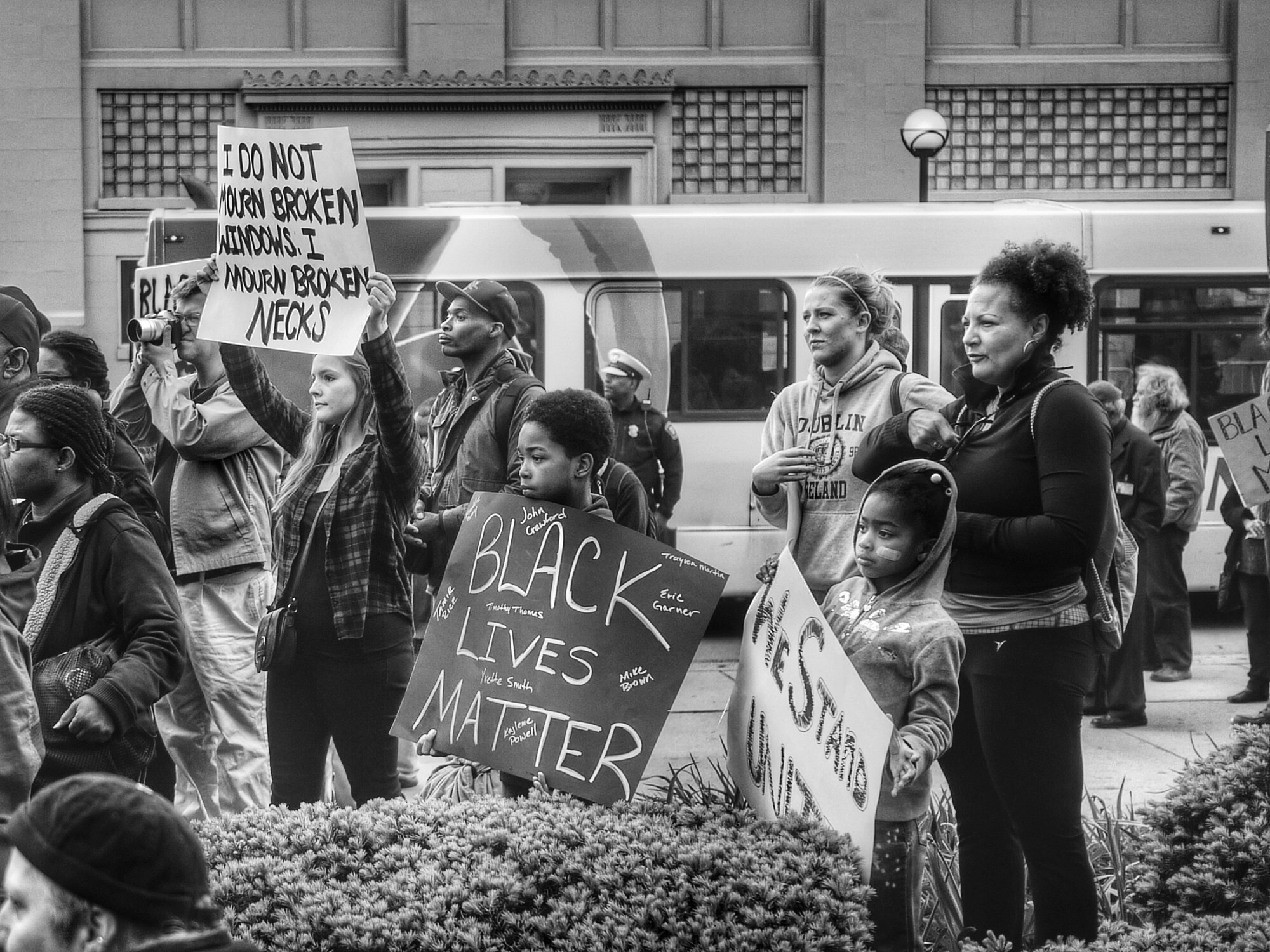The last few days have been painful. As a black latina mom, it has been impossible for me to hide my grief about the murders of Alton Sterling, Philando Castile, and the 5 police officers in Dallas from my two young sons. I am heartbroken, angry, disappointed and afraid; and it’s showing.
I know that all of us, as parents, are wrestling with what’s happening in our own way.
For me, I am struggling to find answers, to explain this broken mess to my beautiful, wide-eyed, brown-skinned, curly headed boys in a way that makes sense.
In a way that affirms their beauty, their power, their worth and also teaches them about the absurd steps they’ll have to take to stay safe.
In a way that doesn’t sugarcoat this awful reality, yet manages to never plant seeds of hatred and violence in them.
I don’t want to simplify this long and complicated story to “bad guys” and “good guys” like their superhero comic books, but I want them to understand that racism and violence are real, that they’re evil and that they must be defeated.
I’ve been looking for resources to help get these principles across to them. I found this great story from Aya de Leon, which I think provides a good template for how to frame these conversations with really young kids. And I love this list from Black Girl Dangerous, which does a great job of breaking down the things I want my kids to understand about racism.
I’d love to know what conversations are happening in your family — and what wisdom you’d share with other parents. (You can email us at [email protected]).
In the end, I keep coming back to what feels like a ridiculously simple and reductive answer, yet I am convinced that it is the right answer, nonetheless. It is something that all parents understand: Love.
Love is the weapon to defeat the evil in this story. And we can be its heroes by loving radically, courageously and unconditionally.
As Dr. Martin Luther King, Jr. said,
“The ultimate weakness of violence is that it is a descending spiral,
begetting the very thing it seeks to destroy.
Instead of diminishing evil, it multiplies it.
Through violence you may murder the liar,
but you cannot murder the lie, nor establish the truth.
Through violence you may murder the hater,
but you do not murder hate.
In fact, violence merely increases hate.
So it goes.
Returning violence for violence multiplies violence,
adding deeper darkness to a night already devoid of stars.
Darkness cannot drive out darkness:
only light can do that.
Hate cannot drive out hate: only love can do that.”
With prayers for peace,
-Nani Arreaza
P.S. We all view these events through the lens of our own experience. So I wanted to share this perspective from another member of our team, on some resources he’s found useful:
“As a white parent struggling with how to talk to my kids about all of this, I appreciated this blog post from Sachi Feris on how to pull apart the different pieces of the conversation–violence, death and dying, racism, and the police. (Sachi wrote another helpful post this week specific to the killing of Alton Sterling and Philando Castile). Also this example of a parent talking with a very young child about last year’s Charleston massacre is beautiful parenting. And finally, though starting these conversations can be hard, I keep thinking back to research I’ve read showing how dangerous it can be *not* to ever talk with kids about race, in particular (see this article: How Silence Can Breed Prejudice). I want to do what I can to stop the cycle of violence and hate — and for me, the first step is conversations with my kids.”
Photo credit: Flickr User 5chw4r7z






